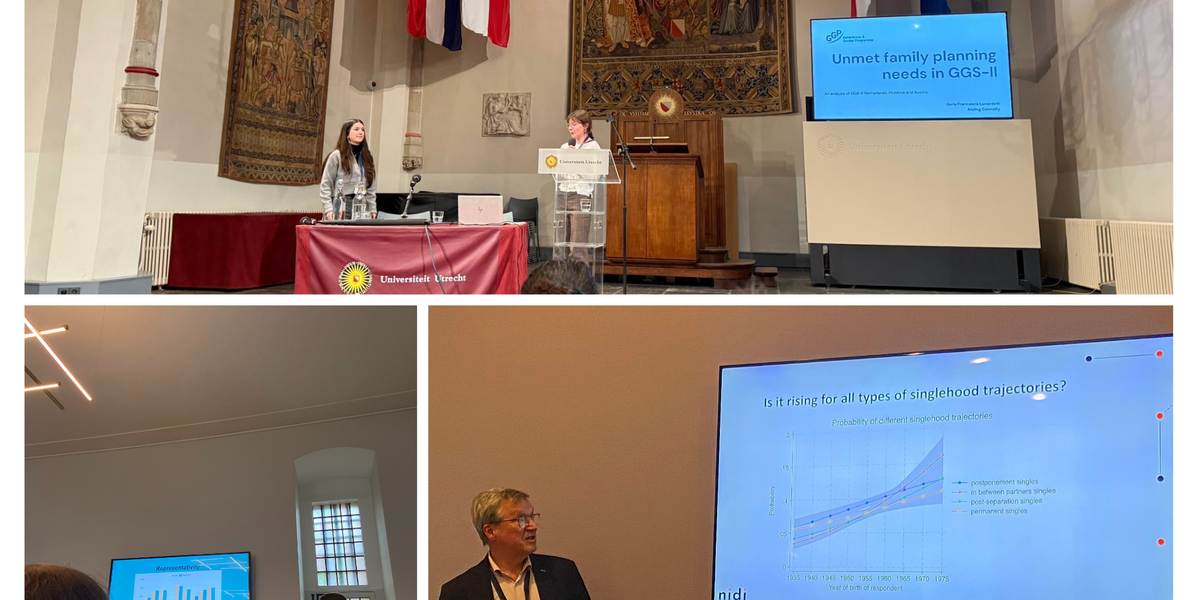
On February 12, leading demographers, researchers, and policymakers in for Dutch Demography Day held in Utrecht. Organized by the Netherlands Demographic Society (NVD), this annual event serves as a key platform for discussing the latest developments in demographic research.
The day began with a plenary session featuring a keynote address by Wolfgang Lutz, Founding Director of the Wittgenstein Centre for Demography and Global Human Capital. Lutz explored three key demographic theories—demographic metabolism, demographic transition, and demographic dividend—offering insights into their predictive power for future population trends.
Throughout the day, parallel sessions covered a wide range of topics, including fertility, migration, ageing, health inequalities, and family relationships. Several presentations made use of the Generations and Gender Survey. For example, Ilaria and Aisling from the GGP Central Coordinate Team (GGP-CCT) examined unmet family planning needs using the GGS, Julia, also from the GGP-CCT, looked at the shift to mixed mode data collection in the GGS and Aat Liefbroer (NIDI) explored how the rise of singlhood differs by gender and educational status.
Each year Dutch Demography Day reaffirms the vital role of demographic research in addressing societal challenges. The discussions and findings presented will undoubtedly contribute to shaping future research within the GGP community and beyond.